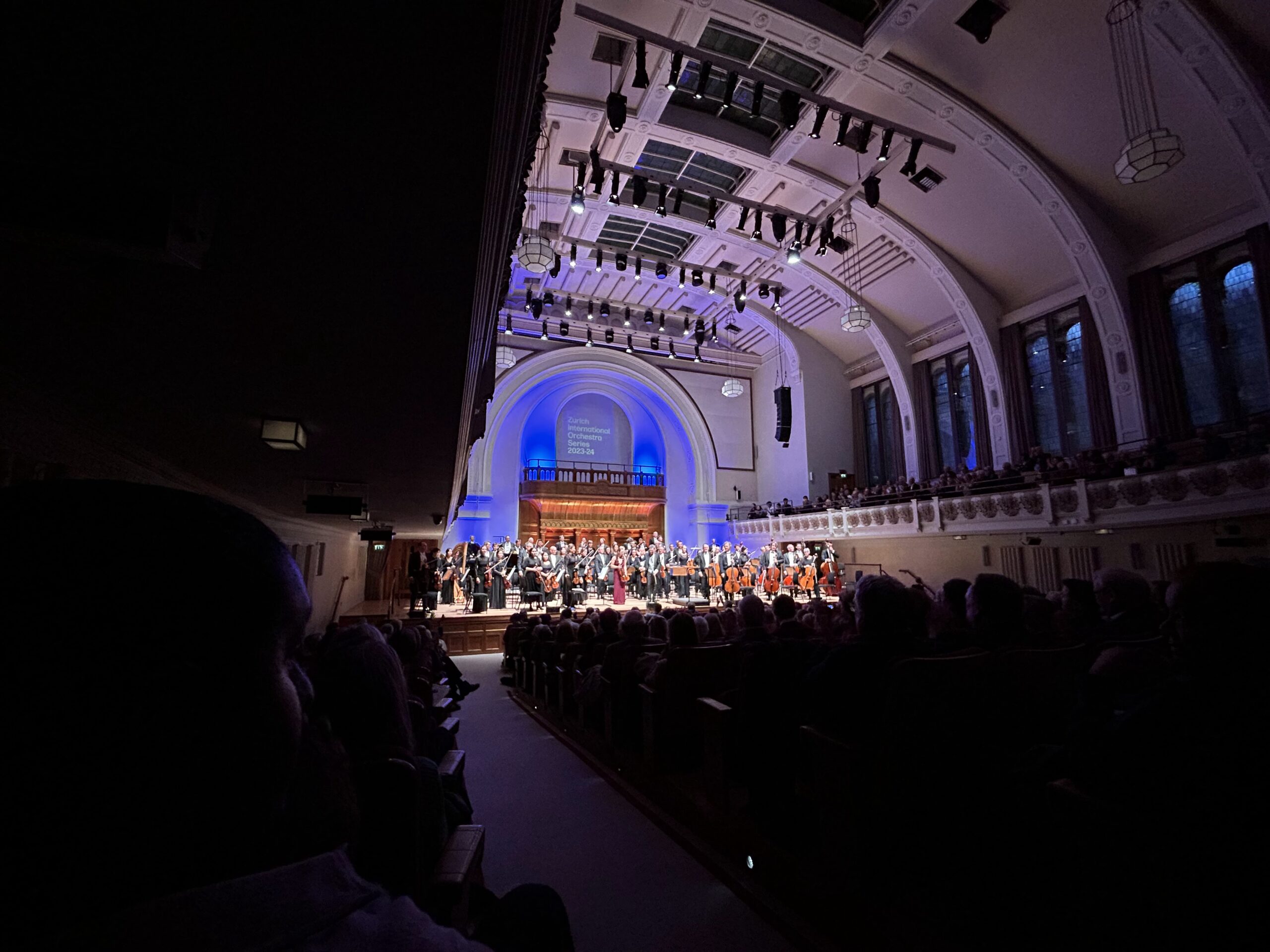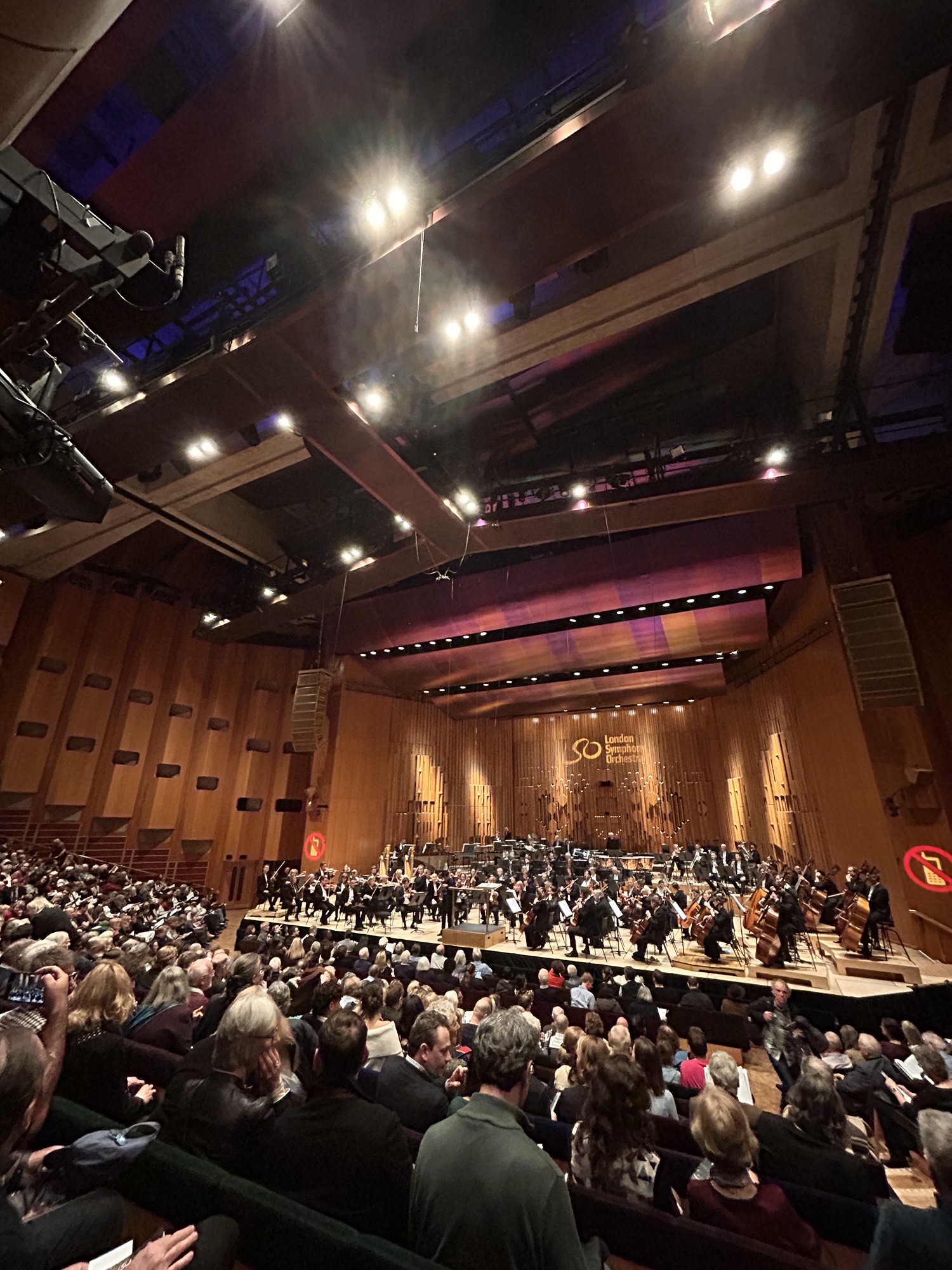On the one hand theres an element of guilt writing about a concert four days after it happened. Details can be lost; a reputation, such as it is, withers. People will roll eyes, probably even tut.
Not the Orchestra of the Age of Enlightenment however. They’re a groovy bunch. Always have been. They’ll know, just as I am reminding myself now, that there are no rules and, just as not all orchestras are the same, not all writers are the same.
A few days distance on the OAE’s electrifying concert with Sir Roger Norrington, thoughts have crystallized. These thoughts develop my thinking about Beethoven, about the second and third symphonies we heard on Tuesday night, and perhaps most interestingly for me, about communication.
Taking a break with recent posts, I’m going to section each observation off into a handy list. It’s easier like that, for me and, I suspect, for everyone else too.
Roger Norrington is a beguiling conductor
Norrington is 85. He shuffles gingerly onto stage with a protrusion from a light-fitting blouse, reaching for musicians to guide him to the podium where a swivel chair awaits. There is a glint in his eye, a flirtatious smile, and an unapologetic willingness to collude with the audience. ‘Clap when you want, perhaps after the funeral march will be a little tricky, but clap whenever you would like,’ was his instruction, or something along those lines.
In between each movement of the joyous and uplifting second symphony he swung around triumphantly to greet and thank, before moving on. And when the moment allowed during the third, he did the same perhaps revealing a little more of how taxing a work this monument to composition really is to both conduct and play.
Sometimes the signalling to the audience at the end of every movement became a little tired. But there can be no doubt that Norrington still illicits a great deal of enthusiasm on stage, his poise, delicacy and detail are a joyous thing to observe. He maintains a youthfulness of spirit which is utterly adorable.
He is too, speaking personally, the last of the rock stars – him referencing the London Classical Players took me back to Denis McCaldin at university introducing the notion of ‘authentic performance’ with the first recording I’d ever heard of Berlioz’s Symphonie fantastique on period instruments. It seemed like an another world when I heard that. Any opportunity to see in the flesh the man who I regarded then as a bit of an iconoclast is going to be a must-see.
Beethoven symphonies reveal stark contrasts and commonly held assumptions
We think we know Beethoven’s music because – certainly in the case of the most well-known works – the melodies are familiar and engaging. But take a historically-informed band conducted by an octogenarian who resists any attempt to wallow, and suddenly the detail is exposed – multiple layers with eye-popping detail brimming with dissonance, tricky counter-intuitive rhythms, and unexpected textures. When you lean into Beethoven 3 and listen attentively the detail is remarkable.
Shameless Beach Boys comparison
It’s the same with the music of the Beach Boys. Wouldn’t It Be Nice, God Only Knows, or Sloop John B from Pet Sounds are a case in point – seemingly simple infectious melancholic mid-tempo ballads, the pleasure of which eclipses the multiple layers of seemingly incompatible and utterly bizarre individual tracks that make up the whole.
Not written, forged
The detail in Beethoven 3 challenges our unwitting assumptions about what Beethoven’s music is. And when we’re confronted with what it really is then it comes alive there in front of us. And what the OAE achieved under Norrington’s direction was to present Beethoven as a progressive perhaps even fearsome creative and his third symphony as a creation forged in the white heat of the furnace.
To observe that or experience it or perhaps even momentarily see Beethoven 3 from that perspective, makes it impossible to listen to any performance subsequently in the same way again. Maybe.
Celebrating the man’s music is like one year-long Beethoven degree module
I went into this Beethoven 250 thing feeling a little daunted. Others sought to use the anniversary to embolden gender politics. Some others understandably and rightly used to continue to shine a light on the ongoing diversity of representation challenge. I realised quite early on that for a man that so many claim did so much to transform classical music, I appeared to be able to recall very little about him. And I had a music degree. And that seemed a bit strange.
Quite early on I now see Beethoven 250 as one long season of music that will challenge my assumptions, force me to research and remember key dates (they are important milestones which helped embed learning despite what any classical music marketer would have you believe), and help guide me in the discovery of a composer I possess very little knowledge about.
And I when I reflect on my knowledge starts and where I feel is moved on to just in the space of a month, I’m beginning to wonder whether most of our perceptions about Beethoven are to do with that damn opening of Beethoven 5 – a kind of musical trope that celebrates, ridicules, and pokes fun at the art form all at the same time.
Not too much and not too little
Which then brings me on to the writing insight. The past few months have seen me working on a project which seeks to evoke a positive reaction to the discovery of classical music in an audience wouldn’t normally consider listening to the art form. It’s what me and another journalist friend have discussed at length over wine as the classic challenge: needing knowledge, expertise, and familiarity with a particular subject, but having to find a way of communicating just a fraction of it in such a way that one entices but not alienates.
And the challenge isn’t just about fine tuning your own communication filter so that you’re not always reaching to look under the bonnet at the earliest opportunity. It’s also about recognising how commonly held assumptions, well-trotted out ‘factoids’, or the over-reliance on lazy historical tropes are in themselves damaging to classical music’s perception.
It isn’t for example, to merely say that one of the interesting things about Beethoven is that he’s suffered from a profound loss of hearing but composed anyway. That’s the starting point for understanding Beethoven and appreciating the impact of his music. And what’s challenging for me is professionally is understanding what’s sufficient information and what’s ‘too much’ for one blog post or article.
Identifying the essence of what makes the discovery of Beethoven’s music a thrill and something to keep coming back to is the challenge in this 250th anniversary year. And every challenge brings with it a useful source of motivation too. Which is nice.



